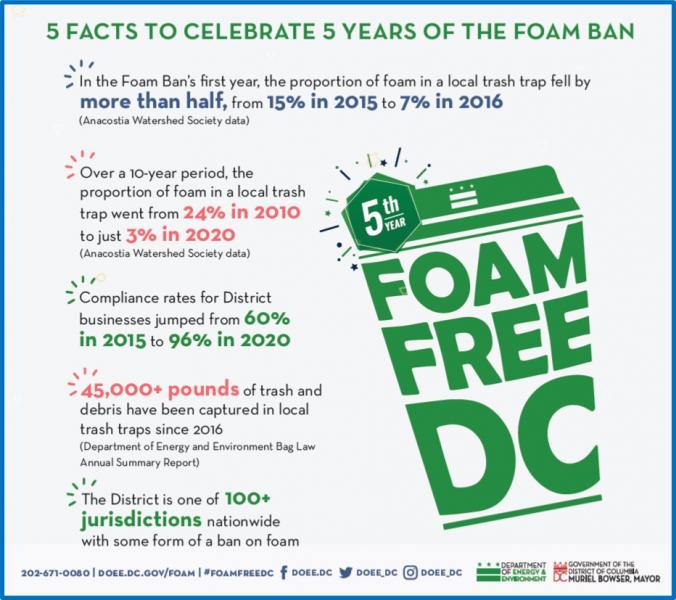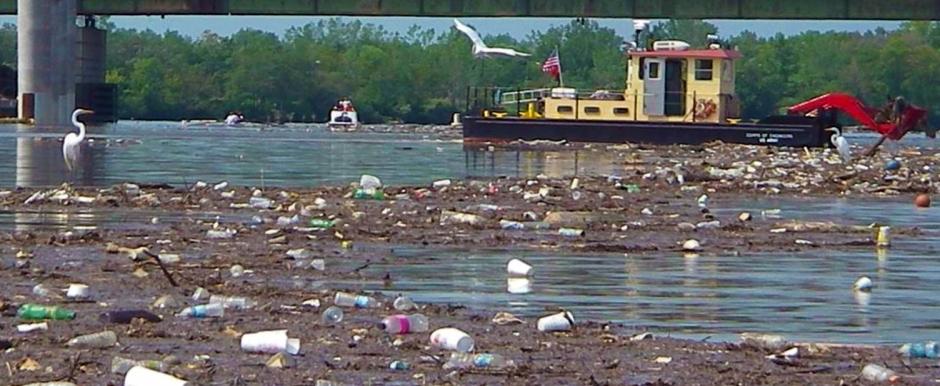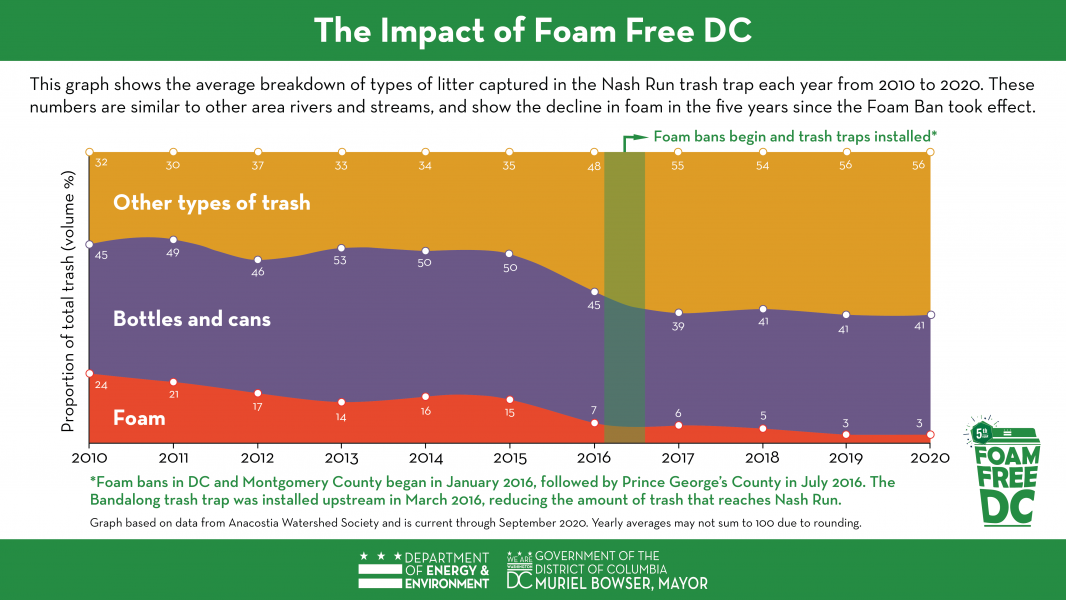The District’s Foam Ban went into effect on January 1, 2016, banning businesses and organizations that serve food or beverages from using disposable food service ware made of expanded polystyrene (also known as foam or by its trade name Styrofoam TM ) to serve consumers.
An amendment to the Foam Ban went into effect on January 1, 2021. The new requirements ban the retail sale of foam food service ware; foam storage containers, such as coolers and ice chests; and foam loose-fill packaging material, commonly known as packing peanuts.
We’re celebrating our 5th anniversary!
The Foam Ban has been helping keep waterways cleaner for the past five years.

What is the purpose of the Foam Ban? | What impact has the Foam Ban had?
What are the requirements of the Foam Ban and who must comply?
How is DOEE enforcing the Foam Ban?
What is the purpose of the Foam Ban?
Foam and other small plastic items are easily blown by wind or washed by rain into storm drains and waterbodies including local rivers and streams. As a result, foam litter is one of the most common types of trash found in the Anacostia River. In addition to being unsightly, toxic chemicals stick to the surface of foam particles and plastic items break down over time into microplastics. Birds, fish, and other wildlife may ingest the foam particles and microplastics, causing the polystyrene and other toxins to enter the food chain. Once in the food chain, these chemicals may impact human and wildlife health.

The Sustainable DC Omnibus Amendment Act of 2014 ("the Act") bans the sale and use of disposable food service ware made of expanded polystyrene, also known as foam or by its trade name Styrofoam TM, and other products that cannot be recycled or composted. Under the Act, starting January 1, 2016, food service entities are banned from serving consumers with foam food ware.
Under an amendment to the Act, starting January 1, 2021, retailers are banned from selling foam food ware, foam storage containers like coolers, and foam packaging materials like packing peanuts to consumers at District stores and retail establishments.
For information on other food service ware material requirements in the Act, visit Material Requirements for Food Service Ware.
What impact has the Foam Ban had?
In the five years since the Foam Ban went into effect in 2016, DOEE partners monitoring trash in the Anacostia River have noted a drop in foam entering the waters. An analysis of data from a trash trap located at Nash Run produced some compelling insights on the Foam Ban's effect.

In addition, DOEE has found over 96% of inspected businesses are complying with the Foam Ban, having successfully transitioned to non-foam food service ware alternatives. Neighboring jurisdictions of Montgomery and Prince George’s Counties (in 2016) and the whole state of Maryland (in 2020) have also instituted bans that have kept our shared waterways cleaner.
What are the requirements of the Foam Ban and who must comply?
| Food Service Foam Ban | Retail Foam Ban | |
| What products does the Foam Ban apply to? |
Any food service product designed for single use. These include:
|
Products made from expanded polystyrene (EPS), including but not limited to:
|
| What products does the Foam Ban NOT apply to? |
The food service Foam Ban does not apply to:
|
The retail Foam Ban does not apply to:
|
| Who is regulated by the Foam Ban? |
Regulated entities include, but are not limited to: |
Regulated entities include, but are not limited to:
|
 Regulations for the Foam Ban and the food service ware requirements are published in the DC Register.
Regulations for the Foam Ban and the food service ware requirements are published in the DC Register.
How is DOEE enforcing the Foam Ban?
DOEE currently enforces the Foam Ban for food service ware and issues fines. DOEE will begin actively inspecting retail businesses for the Foam Ban in January 2021 and will begin issuing fines for retail violations on July 1, 2021.
DOEE solicits tips from the public and conducts regular inspections to determine compliance.
Any additional questions?
If you see an entity using foam products, leave a tip, or use 311. For more information, contact [email protected].

